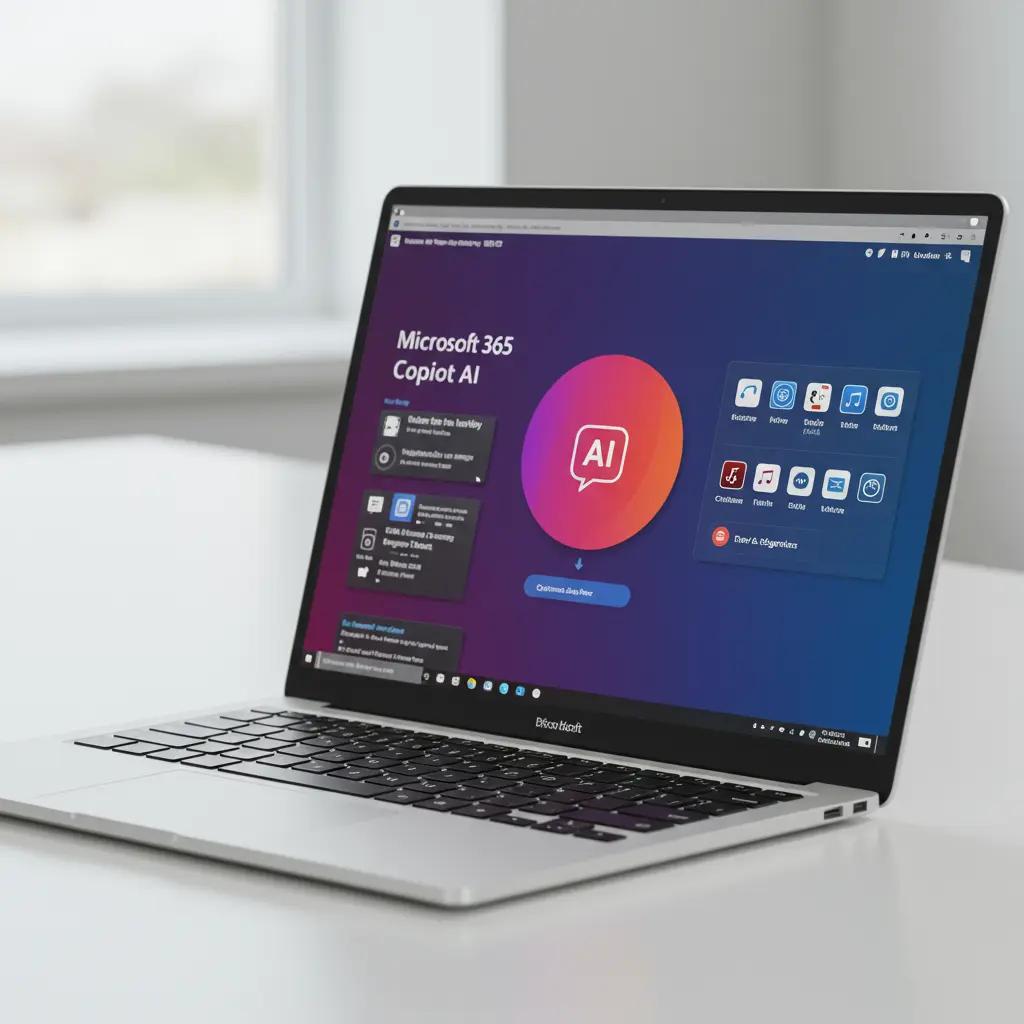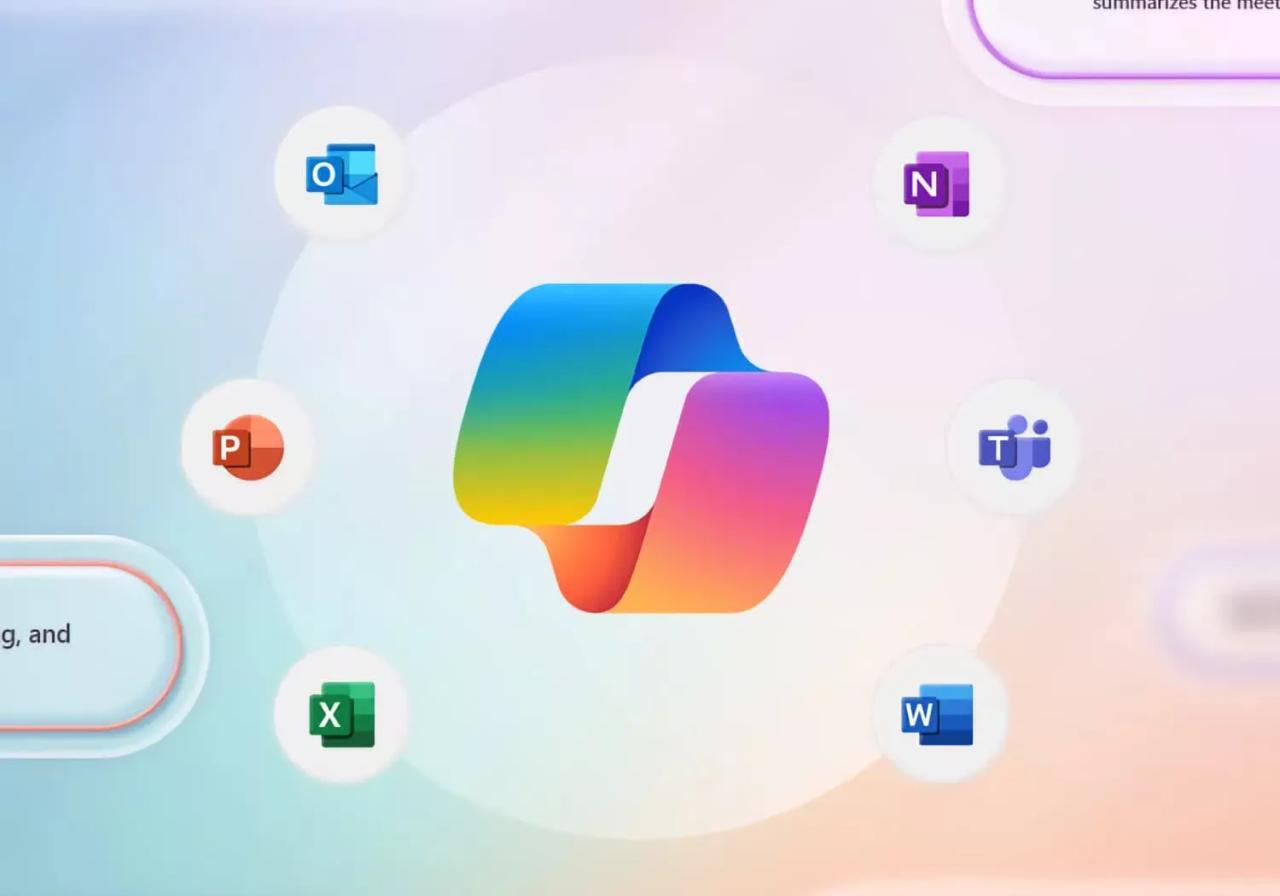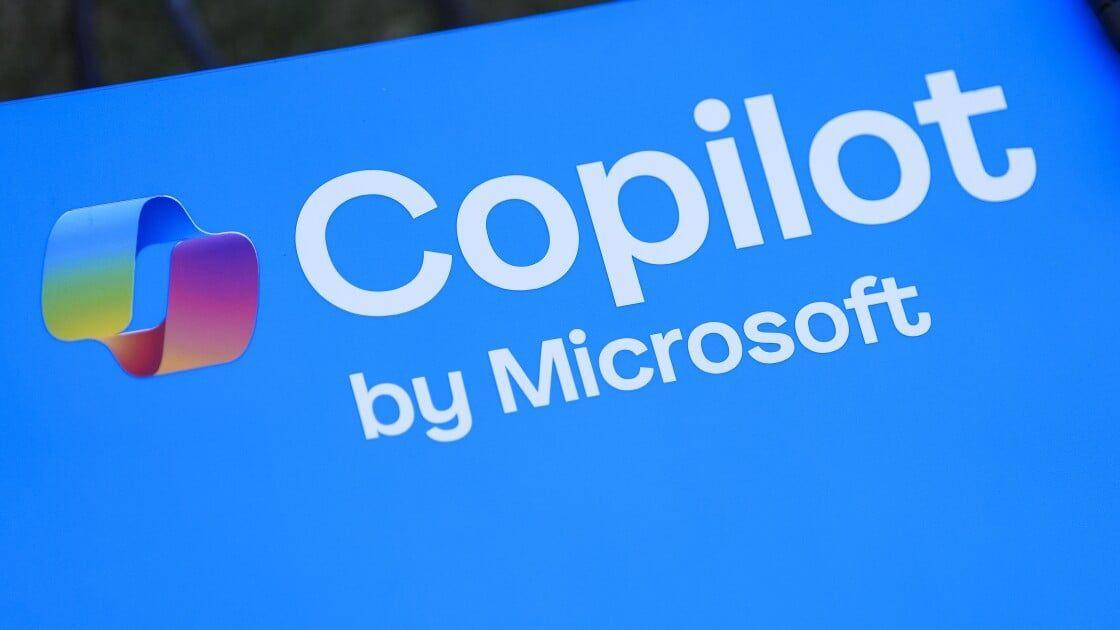Microsoft to Auto-Install Copilot on Microsoft 365 Devices Starting Fall 2025
4 Sources
4 Sources
[1]
Microsoft to install Copilot by default on Microsoft 365 devices starting fall 2025
Serving tech enthusiasts for over 25 years. TechSpot means tech analysis and advice you can trust. Something NOT to look forward to: Microsoft is intensifying its efforts to make Copilot a ubiquitous presence on PCs. The AI chatbot will now be installed by default with every Microsoft 365 subscription, although some conditions may still apply. Microsoft is rolling out an advanced deployment of the Copilot app, which will soon become an integral part of the Microsoft 365 suite. Windows devices with Microsoft 365 desktop client apps installed will be affected by the change, the company announced. The installation will occur in the background, so it should not disrupt user activity. According to Microsoft's plan, the Copilot deployment will begin in fall 2025. Redmond describes the AI service as a tool to boost productivity within the Microsoft 365 suite. The chatbot provides a single access point for exclusive Copilot features available to Microsoft 365 customers, including search, chat, agent-based AIs, and more. Users can access M365's Copilot through various platforms including a dedicated web app, a desktop application for both Windows and Mac, or a mobile app for Android and iOS devices. This new mandatory deployment will make Copilot a core part of the default Microsoft 365 installation, regardless of customer preferences. Redmond warns that the new experience will not affect Microsoft 365 customers in the European Economic Area, who will continue to receive a more privacy-focused experience, as usual. Users and system administrators from other parts of the world may, of course, choose to revert to the previous Copilot-free experience by customizing the "Modern App Settings" in the M365 Apps Admin Center. Windows 11 users running the Pro edition of the operating system can also disable the Copilot deployment - and the entire Copilot experience - by turning the feature off through the system's Group Policy Editor. Alternatively, all Windows 11 users can modify the Windows Registry to achieve the same result. Microsoft is actively pushing for wider adoption of its Copilot apps and services. In August, the company introduced AI-powered Copilot features in Excel, cautioning users that Copilot can "hallucinate" and provide entirely inaccurate results. The new M365 Copilot deployment may be linked to the recently introduced SCOOBE nagging screen, which is designed to remind customers of upcoming payment or subscription renewals.
[2]
Microsoft 365 Copilot will be automatically installed on 365 Clients in October
Users in the EEA are protected against the automatic install Microsoft has confirmed it will start automatically installing the Microsoft 365 Copilot app on Windows devices with Microsoft 365 desktop client apps beginning from October 2025. However, recent EU rulings have influenced Microsoft's decision to automatically install the AI app, because devices in the EEA will not receive automatic installation. Redmond frames the Copilot app as a centralized entry point to GenAI experiences across Word, Excel, PowerPoint and more, but many users will be unhappy with the update. Users have already taken to the internet to complain about Microsoft's invasive approach to pushing its AI tools - installing a whole new app that appears in the Windows Start Menu and is enabled by default could be the final straw for many. Admins can opt out via the Microsoft 365 Apps Admin Center, however the opt-in-by-default approach could be an unwelcome move. Earlier in 2025, a separate setting was added to allow admins to pin the Copilot app to the Windows taskbar. However, while Microsoft's AI push is evident, it's not an entirely new app. Instead, the company explained in a support page that the Microsoft 365 (Office) app has simply been rebranded Microsoft 365 Copilot. "The app remains your starting place to find, create, share, and collaborate in one place with access to your favorite productivity applications," Microsoft wrote. "This update represents the additional ways working with Copilot for tasks such as asking questions, creating content, drafting documents, and building agents with a work account." This all comes as the tech giant continues to battle with Windows 11 adoption. Its latest OS finally reached near-parity with Windows 10 in June 2025, before overtaking it in July. Since then, the two have come closer together again, which could indicate some downgrades.
[3]
Microsoft Will Auto-Install 365 Copilot AI App in October 2025
Starting in October 2025, Microsoft is going to automatically install its 365 Copilot app on Windows PCs that already have desktop versions of Word, Excel, or PowerPoint. The rollout will continue into November and will affect most users around the world, except for those in the European Economic Area (EEA). Copilot is meant to act as a single hub for all of Microsoft's AI features across Office apps, so instead of opening each program to use Copilot, you'll be able to access it from one central app. Here's the catch: if you're a regular home user, there's no way to opt out. The app will be installed whether you want it or not. The only people who can stop it are IT administrators who manage Microsoft 365 for companies and organizations. They'll be able to use the admin center to block the rollout. For everyone else, the only option is to live with it. At best, you can disable it from loading at startup or just ignore it if you don't plan to use it. Microsoft is pushing hard to make Copilot part of everyday use across its products. Earlier this year, the company added a "Copilot Mode" to the Edge browser that can interact with your open tabs and help with searches. Microsoft also bundled Copilot with 365 subscriptions, which led to a 43% increase in subscription prices. These moves are all part of a bigger push to get more people using AI, as Microsoft tries to recover the billions of dollars it has already invested in this technology. Not everyone is convinced that AI adoption is going smoothly, though. Some businesses have already pulled back on how much they rely on tools like Copilot, and there are warnings that an "AI bubble" could burst in a way similar to the dot-com crash in 2000. That means Microsoft may be betting big on something that isn't guaranteed to stick. For users, the reaction will probably be split. If you're someone who already likes AI tools, having Copilot built into your Office apps might be useful. But if you don't care about AI, this will likely feel like yet another piece of unwanted software that Microsoft is forcing onto your computer. Since there's no official way for personal users to stop the install, your best option is just to turn it off in Windows startup settings.
[4]
Microsoft will install Copilot to everyone's PCs from fall 2025
Starting in the fall of 2025, Microsoft will automatically install its AI-powered Copilot application on all Microsoft 365 subscriptions for Windows devices that have the desktop client apps. The company aims to make the tool a core part of its productivity suite, though users outside the European Economic Area will have methods to opt out. The Copilot application will be installed in the background on Windows devices without interrupting user activity. It will become a standard component of the Microsoft 365 package, which includes apps like Word, Excel, and PowerPoint. Copilot acts as a central hub within the productivity suite, offering users integrated search, interactive chat, and AI-powered agent tools designed to assist with various tasks. Users can also access Copilot through a dedicated web app, a desktop version for Windows and Mac, and mobile apps for Android and iOS. The mandatory installation will not apply to customers in the European Economic Area (EEA), who will continue to use a version of Microsoft 365 that emphasizes privacy protections consistent with regional data regulations. For users and administrators outside the EEA who wish to prevent the installation, Microsoft has provided several opt-out methods: This move is the latest step in Microsoft's strategy to embed AI across its products. In August, the company added AI features to Excel, along with a warning that the tool can "hallucinate" and produce inaccurate results, advising users to verify its outputs. The Copilot installation also coincides with other Microsoft initiatives, such as the SCOOBE screen, which reminds users of upcoming subscription renewals. Together, these changes reflect a broader effort to standardize AI integration and enhance user engagement with Microsoft's services.
Share
Share
Copy Link
Microsoft plans to automatically install its AI-powered Copilot app on Windows devices with Microsoft 365 subscriptions, starting in fall 2025. This move aims to integrate AI capabilities more deeply into its productivity suite, though users in the European Economic Area will be exempt.
Microsoft's Copilot Integration Plan
Microsoft has announced a significant change to its Microsoft 365 suite, set to take effect in fall 2025. The tech giant will automatically install its AI-powered Copilot application on Windows devices with Microsoft 365 desktop client apps
1
2
. This move is part of Microsoft's broader strategy to integrate AI capabilities more deeply into its productivity tools.
Source: Dataconomy
Copilot's Features and Accessibility
The Copilot app is designed to serve as a centralized hub for AI-driven experiences across Microsoft 365 applications such as Word, Excel, and PowerPoint. It offers features including search, interactive chat, and AI-powered agent tools
4
. Users can access Copilot through various platforms, including a dedicated web app, desktop applications for Windows and Mac, and mobile apps for Android and iOS devices1
.
Source: Guru3D
Installation Process and User Impact
The installation will occur in the background without disrupting user activity, making Copilot a core part of the default Microsoft 365 installation
1
. The rollout is scheduled to begin in October 2025 and continue into November, affecting most users worldwide3
.European Economic Area Exemption
Notably, customers in the European Economic Area (EEA) will be exempt from this automatic installation. They will continue to receive a more privacy-focused experience, in line with regional data regulations
1
2
.Opt-Out Options and User Concerns
While IT administrators can opt out of the Copilot deployment through the Microsoft 365 Apps Admin Center, regular home users have limited options
3
. Windows 11 Pro users can disable Copilot through the Group Policy Editor, and all Windows 11 users can modify the Windows Registry to achieve the same result1
.Related Stories
Microsoft's AI Push and Market Implications
This move is part of Microsoft's broader effort to promote AI adoption across its product line. Earlier in 2025, the company introduced AI-powered Copilot features in Excel, albeit with a warning about potential inaccuracies
1
. The integration of Copilot into Microsoft 365 subscriptions has already led to a 43% increase in subscription prices3
.
Source: TechSpot
User Reactions and Industry Concerns
The automatic installation has sparked mixed reactions. While some users may find the integrated AI tools useful, others view it as unwanted software being forced onto their computers
3
. There are also concerns about the sustainability of the AI trend, with some businesses scaling back their reliance on tools like Copilot and warnings of a potential 'AI bubble' similar to the dot-com crash of 20003
.References
Summarized by
Navi
Related Stories
Recent Highlights
1
Google Gemini 3.1 Pro doubles reasoning score, beats rivals in key AI benchmarks
Technology

2
Meta strikes up to $100 billion AI chips deal with AMD, could acquire 10% stake in chipmaker
Technology

3
Pentagon threatens Anthropic with supply chain risk label over AI safeguards for military use
Policy and Regulation








